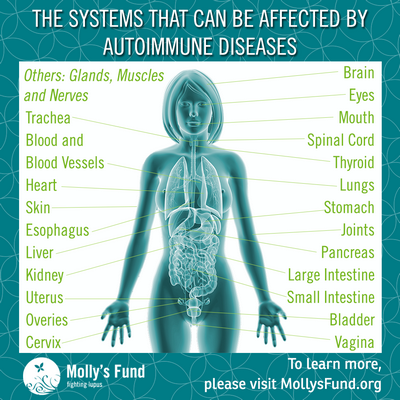All women must be aware of autoimmune diseases.

It can affect any part of the body and all women need to be aware of what an autoimmune disease is and how to handle them when they get diagnosed. If you have one or more of these autoimmune diseases then the following information will help you better understand your condition.
Rheumatoid Arthritis (RA) is one of the most common and most painful autoimmune diseases affecting the joints. Women are much more at risk for RA because of hormonal changes that occur during pregnancy and menopause. The symptoms of RA in women include swelling, redness and inflammation of the joint; pain on moving the joint; and a reduction in mobility of the joint.
A type of arthritis called osteoarthritis affects the bone. Osteoarthritis can be very painful as it can cause the bones to become damaged and stiff. It may also affect the joints as well as the nerves that are inside the bones. This condition can affect the spine, the arms, and the legs.
Diabetes is an autoimmune disease. It involves the pancreas, an organ that produces insulin to help process glucose in the blood. It can also affect the intestines, the kidneys, and the brain.
Another form of autoimmune disease is called Lupus. Lupus is a condition where the immune system attacks healthy cells in the body.

It can affect both the internal and the external organs.
There are other forms of Lupus such as Systemic Lupus erythematosus and Non-systemic Lupus erythematosus. Systemic Lupus occurs when the immune system attacks the body’s own white blood cells. Non-systemic Lupus occurs when there is an imbalance between the white blood cells and the body’s own immune system. In some cases, there is an increase in white blood cells that causes damage to the blood vessels and to the organs of the body.
Psoriasis is another form of autoimmune disease. People with this type of autoimmune disease have red, dry skin that does not itch. They also have a thick, scaly, dry outer layer of the skin.
There are other symptoms to consider as well. For example, if you have arthritis, you may notice pain when the joint gets inflamed. People with Lupus also have a red, warm, dry, scaly skin with itching and discomfort. Other symptoms to consider are a low energy level and weight gain.
Some of the symptoms to consider include changes in the digestive tract. If you have an autoimmune disease such as Lupus, it could cause your bowels to move too quickly, which can cause diarrhea and constipation.
Symptoms to think about include fatigue, unexplained fever, and unexplained bruising.

Some people experience severe depression because their immune system has been weakened by their illness.
There are many different causes of these conditions. In most cases, the condition has a genetic component and it is passed down through families.
Autoimmune diseases do not always mean that people’s bodies are broken down into parts. It is possible for some people to get sick or develop chronic conditions even though they don’t have autoimmune disorders.
For some people, some medications are prescribed to treat these disorders. There are prescription drugs that can be used to treat autoimmune diseases such as arthritis and diabetes. People with an auto immune disorder should contact their doctors immediately when they experience any of the above symptoms to make sure that their condition is correct and should not be treated aggressively.
Some types of autoimmune diseases include Lupus, arthritis, rheumatoid arthritis and thyroid problems. Each of these conditions can have serious health effects on the body and can require a doctor’s treatment. Other conditions that can impact the immune system are diabetes and cancer. There is no cure for autoimmune disease, but there are some things that can be done to control it.
T autoimmune diseases can affect almost anyone, but they are more common in women than men. Women are three times more likely to get these illnesses.
T autoimmune diseases can affect almost anyone, but they are more common in women than men. Women are three times more likely to get these disorders.